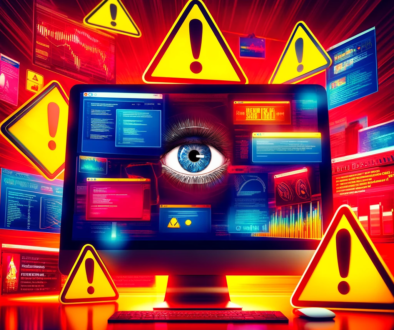The Ultimate Guide to Navigating the Intricacies of Endpoint Security

Introduction
In today’s digital age, with cyberthreats lurking around every corner, organizations must take proactive steps to ensure their data and network remain protected. One crucial aspect of cybersecurity is endpoint security—a topic that might seem daunting at first but is essential to understand. In this comprehensive guide, we’ll break down the ins and outs of endpoint protection, helping you navigate its complexities and better secure your business.
A Sneak Peek into Endpoint Security
What is Endpoint Security?
Endpoint protection refers to the protection of an organization’s network by securing all endpoint devices such as laptops, desktops, smartphones, and tablets. These devices, known as endpoints, are vulnerable to cyber attacks and require robust security measures to prevent unauthorized access, data breaches, and other malicious activities.
Why is Endpoint Security Important?
In today’s interconnected world, businesses face an ever-evolving landscape of cyber threats. Endpoint protection is vital for:
- Safeguarding sensitive data: With the rise in data breaches, protecting sensitive information is paramount. Endpoint protection helps prevent unauthorized access to your company’s critical data.
- Ensuring business continuity: Cyberattacks can disrupt operations and lead to financial losses. Robust endpoint protection measures help ensure your business remains up and running.
- Maintaining compliance: Companies must comply with various regulations, such as GDPR or HIPAA, that mandate stringent data security measures. Implementing endpoint protection is a key aspect of achieving compliance.
Best Practices for Endpoint Security
Follow these best practices to enhance your organization’s endpoint protection:
- Maintain up-to-date software: Ensure all endpoint devices have the latest patches and updates to prevent vulnerabilities.
- Implement strong password policies: Enforce the use of strong passwords and multi-factor authentication to minimize unauthorized access.
- Utilize antivirus and anti-malware software: Protect devices from malware and other cyber threats with reliable security software.
- Employ encryption: Encrypt sensitive data to prevent unauthorized access, even if a device is lost or stolen.
- Train employees: Educate your team on the importance of endpoint protection and the best practices they should follow.
Must-Have Endpoint Security Tools
Equip your organization with these essential tools for effective endpoint protection:
- Endpoint Protection Platform (EPP): A comprehensive solution that includes antivirus, anti-malware, firewall, and intrusion detection capabilities.
- Endpoint Detection and Response (EDR): A tool that monitors endpoint activity and responds to potential threats in real-time.
- Mobile Device Management (MDM): A platform that enables centralized management of mobile devices, ensuring they adhere to security policies.
- Data Loss Prevention (DLP): A solution that helps prevent unauthorized sharing or access to sensitive data.
- Patch management software: A tool that automates the process of updating software, reducing the risk of vulnerabilities.
Frequently Asked Questions
What’s the difference between endpoint security and network security?
Endpoint security focuses on securing individual devices, while network security aims to protect the entire network infrastructure. Both are essential components of a comprehensive cybersecurity strategy.
How can I determine the effectiveness of my endpoint security measures?
Regular security audits, penetration testing, and vulnerability assessments can help gauge the effectiveness of your endpoint protection measures, allowing you to identify areas for improvement.
Is endpoint security only necessary for large enterprises?
No, businesses of all sizes need to implement endpoint protection measures to protect their data and network from cyber threats. Smaller businesses may even be more vulnerable to attacks, as they often lack the resources to implement
advanced security measures, making them attractive targets for cybercriminals.
How does endpoint security help with regulatory compliance?
Endpoint protection measures help protect sensitive data, which is often a key requirement for compliance with various regulations. By implementing endpoint protection best practices, businesses can demonstrate their commitment to data protection, helping them meet regulatory standards such as GDPR, HIPAA, and PCI-DSS.
Conclusion
Endpoint security is a critical aspect of any organization’s cybersecurity strategy. By understanding its importance, adhering to best practices, and deploying the right tools, you can significantly reduce the risk of cyberattacks and ensure the safety of your business’s most valuable assets. Remember that staying vigilant and up-to-date with the latest developments in endpoint protection is crucial for maintaining a robust defense against ever-evolving cyber threats.
Save time, money and effort with Inology IT
Inology IT is an award-winning Managed Service Provider. We’re a friendly team with plenty of expertise, and our services range from fully managed or complementary IT Support to Professional Services, Cyber Security, Communications and Business Intelligence.
If you could use a helping hand with your IT services, please don’t hesitate to get in touch.




